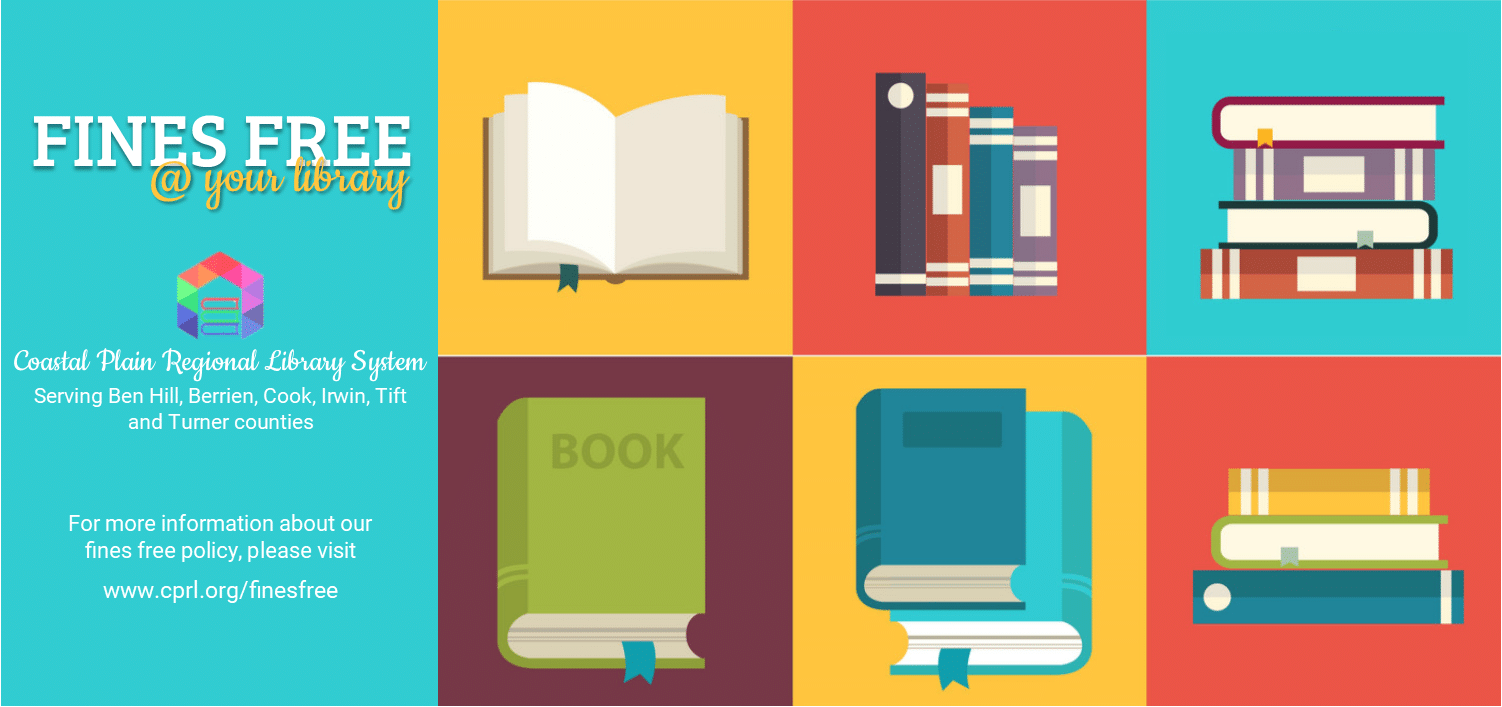Paving the Way to Fines-Free Library Access Statewide

In 2020, more than 9,000 patrons of the Coastal Plain Regional Library System (CPRLS) were barred from accessing library resources because they owed $10 or more in overdue fees—a number that exceeds the total population of two of the six counties in the region (Ben Hill, Berrien, Cook, Irwin, Tift, and Turner).
Numbers like those had long concerned Jennifer Golden, CPRLS assistant director—along with the recognition that fines and fees limit access to library resources. After researching the growing national trend among public libraries that no longer charge overdue fees, she mentioned the idea of going fine-free to colleagues. Concerns about lost revenue always got in the way—until COVID-19. In March 2020, the library system instituted an amnesty policy for all overdue items in response to the pandemic.
As CPRLS staff explored strategies to compensate for revenue lost due to the closures and amnesty policy, they realized that late fees represented just 2% of their annual budget. They also noted that at the Chattahoochee Valley Library System, the first in Georgia to stop charging late fees, lost item returns more than doubled in the six months after eliminating late fees.
“We had the data, the research, and the belief that this is good for our communities,” said Sandy Hester, CPRLS director. “It might seem odd to do this during a pandemic, but we saw that we were able to pay staff salaries and other costs without those funds. The pandemic removed what had been the biggest sticking point.”
CPRLS is one of 51 library systems in Georgia Library PINES (Public Information Network for Electronic Services), a program of the Georgia Public Library Service (GPLS) designed to provide equal access to information across the state by creating a “borderless library.” Georgians in the 146 counties served by PINES can use their local library card to access the shared collection of 10.6 million books and materials in PINES free of charge.
As a PINES member, the other sticking point CPRLS faced was the recognition that policy changes could affect other libraries in the network. “Our shared customer experience is key to PINES,” said Hester. “We wanted to pursue this idea, but we didn’t want to change or diminish that experience.”
To test out the impact of this policy change on the larger PINES network, CPRLS staff prepared proposals for the PINES executive committee and the regional and county library boards in the Coastal Plain. The proposal outlined a plan for a two-year pilot during which time CPRLS would eliminate late fees for CPRLS-owned items, but not items from other libraries in the network.
“We work to empower local libraries at GPLS who, in turn, work with their communities,” said Wendy Cornelisen, GPLS assistant state librarian and Georgia Library Association president. “The experience at Chattahoochee Valley has shown what a positive impact this policy change can have: more people get access to free public library resources. We’re excited about the pilot at Coastal Plain, which will show how this might work in the larger PINES network and what additional solutions might be needed.”
When Northwest Georgia Regional Library System leaders heard about the CPRLS pilot, they asked to be included. State and local leaders also decided to extend the pilot to three years to better measure the policy change’s impact, with the pandemic impacting operations for longer than originally expected.
In Jan. 2021, CPRLS kicked off the new fines-free pilot along with a “clean slate” project that wiped away old debt of more than 20,000 patrons’ accounts, some of which were more than a decade old and had barred holders’ access.
Launching these two new efforts simultaneously posed some challenges for the system. “The clean slate project was much more intense for us, requiring staff to examine patron records one at a time,” said Hester. “My advice to others who want to do something similar would be to kick off the clean slate project first and do a big publicity push to encourage people to bring items back. That was hard for us to do in the midst of the pandemic.”
Hester also recommended reaching out to local civic clubs, community groups, or businesses to sponsor a local clean slate effort to make the loss of that potential revenue easier to manage.
It’s hard to discern the full impact policy changes in the Coastal Plain communities will have on patron visits, circulation, and book returns post-pandemic—but library staff are reporting positive stories about what they’re hearing and seeing in local branches.
“Young children check out more books because they are no longer worried about the costs that might be incurred if they don’t get them all back on time,” said Hester. “A young man now comes into the branch regularly to use the computers, having previously been blocked access because of his fines. The staff also have told me how the fine-free policy makes their jobs easier as they no longer hear patron frustrations over 15-cent fines.”
“The pandemic has confirmed that Georgians need the programs, services, and materials offered by their public libraries more than ever,” added Julie Walker, state librarian and associate vice chancellor for libraries. “Libraries are essential in addressing education disparities, ensuring that students and families with few resources are able to succeed in their educational pursuits. Unfortunately, overdue fines often prevent library patrons from accessing these services, as library cards are blocked and entire families are denied access. We’re so pleased that Coastal Plain Regional Libraries is taking the lead in removing barriers to access for their users and providing a model for other PINES libraries as they consider decisions about fines.”
Contact:
Krystin Dean
GaFCP Communications Specialist
706-897-4711
krystin@gafcp.org
